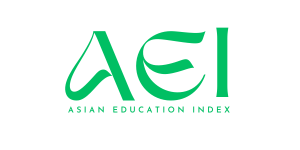Information and Communication Technologies in Education
Keywords:
Information, information and communication technologies, computerization, electronic resourcesAbstract
This work is a description of information and communication technologies (ICT) used in education. The tasks solved through the introduction of ICT in the educational process are outlined. Based on the popularization of this type of technology in education, the advantages and disadvantages in obtaining the necessary knowledge are given.
References
Wikipedia. Svobodnaya entsiklopediya [Elektronnyi resurs], – https://ru.wikipedia.org/wiki/ Informational_technologies
Norenkov I.P., Zimin A.M. Information technologies in education. — M.: Izd-vo MSTU im. N.E. Bauman, 2004.
Yakovlev A.I. Information and communication technologies in education / A.I. Yakovlev // Information Society. – 2001. – Vyp.2. – S. 32-37.
UNESCO World Report on Communication and Information, 1999-2000 – Moscow – 2000. – 168 p.
Education and the Twenty-first Century: Information and Communication Technologies. – M.: Nauka, 1999. – 191 p.
Glossary /http://www.glossary.ru/cgi-bin/gl_sch2.cgi?RIttuig.outt:l!yl)
Robert I.V. Modern information technologies in education. M.: Shkola-Press, 1994.
Innovative technologies in education / Ed. Abylgazieva I.I., Ilyina I.V. / Sost. Zemtsov D.I. - M.: MAKS Press, 2011. - 141 c.
Korneev I.K., Xandopulo G.N., Mashurtsev V.A. Information technologies. - M.: TK Welby, Prospect, 2009. - 224 p.
Zaitseva S.A., Ivanov V.V. Modern information technologies in education // http://sgpu2004.narod.ru/infotek/infotek2.htm
Gordiyevskaya S.P. Russkaya gramota. Sound [o], letters O, o // Teaching in primary school// http://festival.1september.ru/articles/606542/
Downloads
Published
Issue
Section
License

This work is licensed under a Creative Commons Attribution-NonCommercial 4.0 International License.
User Rights
Under the Creative Commons Attribution-NonCommercial 4.0 International (CC-BY-NC), the author (s) and users are free to share (copy, distribute and transmit the contribution).
Rights of Authors
Authors retain the following rights:
1. Copyright and other proprietary rights relating to the article, such as patent rights,
2. the right to use the substance of the article in future works, including lectures and books,
3. the right to reproduce the article for own purposes, provided the copies are not offered for sale,
4. the right to self-archive the article.













